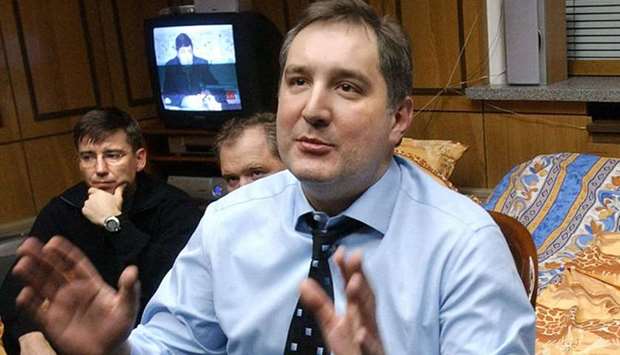Russia put a brave face yesterday on the loss of its space travel monopoly, saying it planned to test two new rockets this year and resume its lunar programme in 2021.
The comments from the Russian space agency Roscosmos came after US entrepreneur Elon Musk’s SpaceX became the world’s first commercial company to put humans into orbit, signalling the dawn of a new era.
Russia had for many years enjoyed a monopoly as the only country able to ferry astronauts to the International Space Station (ISS), and Saturday’s flawless US launch meant the loss of a sizeable income for Moscow.
“We are not planning to sit idle,” said Roscosmos spokesman Vladimir Ustimenko on Twitter. “Already this year we will conduct tests of two new rockets and resume our lunar programme next year.”
He did not elaborate but Russian space agency chief Dmitry Rogozin has said earlier the country planned to conduct a new test launch of the Angara heavy carrier rocket this autumn.
Rogozin has also said that Russia is pressing ahead with the development of its new intercontinental ballistic missile, the Sarmat, also known as Satan 2 by the North Atlantic Treaty Organisation (Nato)’s classification.
In 2018, President Vladimir Putin boasted that the Sarmat was one of the new Russian weapons that could render Nato defences obsolete.
The Russian space agency has earned large sums by ferrying US astronauts to the International Space Station: a seat in the Soyuz costs the National Aeronautics and Space Administration (Nasa) around $80mn.
Yesterday Roscosmos rushed to point out that the United States still needed Moscow.
“It’s very important to have at least two possibilities to make it to the station. Because you never know...” spokesman Ustimenko said.
The Russian space programme is renowned for having sent the first man into space in 1961 and launching the first satellite four years earlier.
But since the collapse of the USSR in 1991, it has been plagued by corruption scandals and a series of other setbacks, losing expensive spacecraft and satellites in recent years.
Yesterday Roscosmos also criticised US President Donald Trump’s “hysteria” about the SpaceX flight.
Trump, who observed the launch, said the United States had regained its place as the world’s leader in space, that US astronauts would soon land on Mars, and that Washington would soon have “the greatest weapons ever imagined in history”.
Trump hailed what he said was the end of being at the mercy of foreign nations.
Speaking at the iconic Kennedy Space Centre in Florida after the flawless SpaceX launch, the president vowed that US astronauts would return to the Moon in 2024 “to establish a permanent presence and a launching pad to Mars”.
“And the first woman on the Moon will be an American woman and the first nation to land on Mars will be the United States of America,” he said. “We are not going to be number two anywhere.”
Some officials in Moscow sought to downplay the US feat.
“This is a flight to the International Space Station, not to Mars,” said Alexey Pushkov, a member of the upper house of parliament.
“The hysteria raised after the successful launch of the Crew Dragon spacecraft is hard to understand,” Roscosmos spokesman Ustimenko said. “What has happened should have happened long ago.
“Now it’s not only the Russians flying to the ISS, but also the Americans. Well that’s wonderful!”
Moscow has said previously that it is also deeply worried about what it fears are US plans to deploy weapons in space.
Moscow would not be sitting idly by, Ustimenko said.
Musk has also lobbed a jab at Roscosmos chief Rogozin, who once said that Washington may one day be forced to “deliver its astronauts to the ISS by using a trampoline”.
“The trampoline is working,” quipped Musk at a post-flight news conference alongside Nasa administrator Jim Bridenstine.
Both men laughed.
“It’s an inside joke,” Musk added.
Rogozin responded: “It’s safe to congratulate you at this point with a successful launch and docking. Bravo!”
“Please convey my sincere greetings to @elonmusk (I loved his joke) and @SpaceX team. Looking forward to further co-operation!” he tweeted.
In 2014, Rogozin, then deputy premier, mocked the lack of a US manned flight programme after Washington announced sanctions against Moscow which included space industries.
The US launch and Musk’s joke set Russian social media alight, with wits ridiculing Rogozin and the space chief’s name trending on Twitter.
“How do you like this, Dmitry Rogozin?” one critic prodded.

Rogozin: congratulated Musk on the successful launch and docking of the SpaceX spacecraft.
